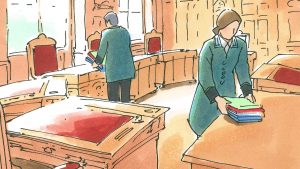Preparation is everything, particularly in regard to functions or meetings. Nothing spoils the mood of attendees more than poorly-prepared events. Everyone hates to be stuck at long meetings, and, given tight work schedules, quick and efficient meetings are of paramount importance.
Poorly-organised meetings can drive busy people mad, and a lack of preparedness can be a major cause of such mind-numbing affairs.
Utilize the tips below to ensure that your meeting sessions are always well prepared in advance.
Understand the Meeting’s Purpose
Defining the reasons for holding a meeting is critical. Mostly, function holders define their objectives before people get to the meeting. So be sure to provide clarification as to what the meeting is all about.
 With clear objectives, you can deliver agendas or raise issues related to the course of the meeting. Additionally, determine what you expect from the meeting. This will allow you to get answers to your questions and enhance your concentration.
With clear objectives, you can deliver agendas or raise issues related to the course of the meeting. Additionally, determine what you expect from the meeting. This will allow you to get answers to your questions and enhance your concentration.
Use Minutes from Past Meetings
At the top of the meeting agenda, attach all relevant minutes from the past meetings. With information discussed at previous gatherings, you won’t have to waste time going back into the past.
Set Time Limits
Most meetings are planned to take a short time, sometimes an hour or just 30 minutes. But you can adjust this period depending on your objectives.
Depending on the meeting’s agenda, sessions may take considerably longer. For instance, when attendees are overwhelmed, it can take longer to get them back on track.
Start Preparing Early
Finally, what you sow during the preparation phase will determine what you reap at the end of the meeting. Preparing for functions well in advance is sure to enhance their overall efficacy.
So be sure to allocate sufficient time to the planning phase to ensure the success of your meeting or conference.